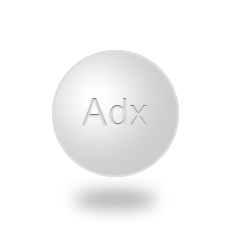Estrace
Estrace is generically known as estradiol oral. Estrace tablet consists of estradiol which is a form of hormone estrogen. Estradiol is the sex hormone produced by the ovaries in females which maintains several life processes in body.

Uses
Estrace is used for the treatment of the menopausal symptoms like vaginal dryness, irritation, burning sensation and hot flashes. Other uses of this drug are the stopping of osteoporosis after menopause and replacement of estrogen in females with ovarian disorder or other medical conditions in which the natural estrogen is reduced in the body. Sometimes Estrace is used in the cancer treatment in men and women.
How To Use
Take Estrace precisely in the same way prescribes by the doctor. Estrace may elevate the risk of uterine cancer. To reduce this risk, your doctor may tell you to take progestin along with this drug. Your progress should be checked by your doctor on a regular basis to observe whether you should keep using this medicine. On a monthly basis, check for any lumps on breasts on your own and have periodic mammograms during the use of Estrace.

Side Effects
Get immediate medical aid if you observe any signs of hypersensitivity to Estrace like: swollen lips, tongue, throat or face, hives and trouble breathing. Notify your doctor instantly if you have:
- Symptoms of heart attack- chest pain, pain in shoulder, sweating, nausea;
- Blood clotting signs in lungs- sudden cough, rapid breathing, wheezing, coughing up blood, chest pain.
- Symptoms of stroke- sudden weakness, sudden extreme headache, slurred speech, vision disturbances, numbness and problems in balance.
- Blood clotting symptoms in leg- warmth, swelling, pain or redness in legs
- Tenderness or swelling in stomach
- Jaundice (yellowish eyes or skin)
- Abnormal vaginal bleeding
- Lumps in breast
- Rapid weight gain
- Swelling
- Elevated levels of blood calcium- vomiting, nausea, stomach pain, constipation, loss of appetite, increased urination, muscle pain, joint pain, confusion and restlessness.
The most common side effects of Estrace are as follows:
- Headache
- Breast pain
- Vaginal itching
- Change in vaginal discharge
- Light bleeding in vagina
- Changes in menstrual cycle
- Hair thinning
- Bloating
- Abdominal cramps
- Vomiting
Contraindications
Estrace is contraindicated in patients having: bleeding disorder, liver disease, abnormal vaginal bleeding, history of a hormone-dependent cancer like uterine, breast, thyroid or ovarian cancer, or if you’ve had a blood clot, stroke or heart attack. Estrace should not be used for the prevention of stroke, heart disease or dementia, as this drug may actually elevate the risk of having these conditions. To be sure that this medicine is safe for you let your doctor if you already have:
- Risks of coronary artery disorder like lupus, diabetes, obesity, smoking, hypertension, high cholesterol
- A thyroid disease
- Kidney disorder
- Epilepsy
- Asthma
Pregnancy And Estrace
Do not use this drug during pregnancy. Estradiol is excreted into the maternal milk. And it may reduce the production of breast milk.
Related Drugs
Arimidex
Conditions:
Breast Cancer

Nolvadex
Conditions:
Breast Cancer

Estradiol
Estradiol is a form of estrogen, which is a female sex hormone primarily produced in the ovaries. It plays a crucial role in the development and regulation of the female reproductive system and secondary sexual characteristics.
In females, estradiol is responsible for regulating the menstrual cycle, promoting the development of secondary sexual characteristics during puberty, maintaining bone density, and influencing mood. It also has effects on various tissues throughout the body.
Medically, estradiol is commonly prescribed as hormone replacement therapy (HRT) for menopausal women to alleviate symptoms like hot flashes, vaginal dryness, and mood swings. It is available in various forms, including pills, patches, creams, and gels.
Vaginal Dryness
Vaginal dryness is a common condition that many women experience, particularly during menopause. However, it can also occur due to various other reasons such as hormonal changes, childbirth, breastfeeding, certain medications, stress, immune disorders, and other health conditions.
During menopause, decreased levels of estrogen can lead to changes in the vaginal tissues, causing thinning, decreased lubrication, and increased dryness. These changes can result in symptoms like vaginal dryness, itching, burning sensations, discomfort during intercourse, and an increased risk of urinary tract infections.



